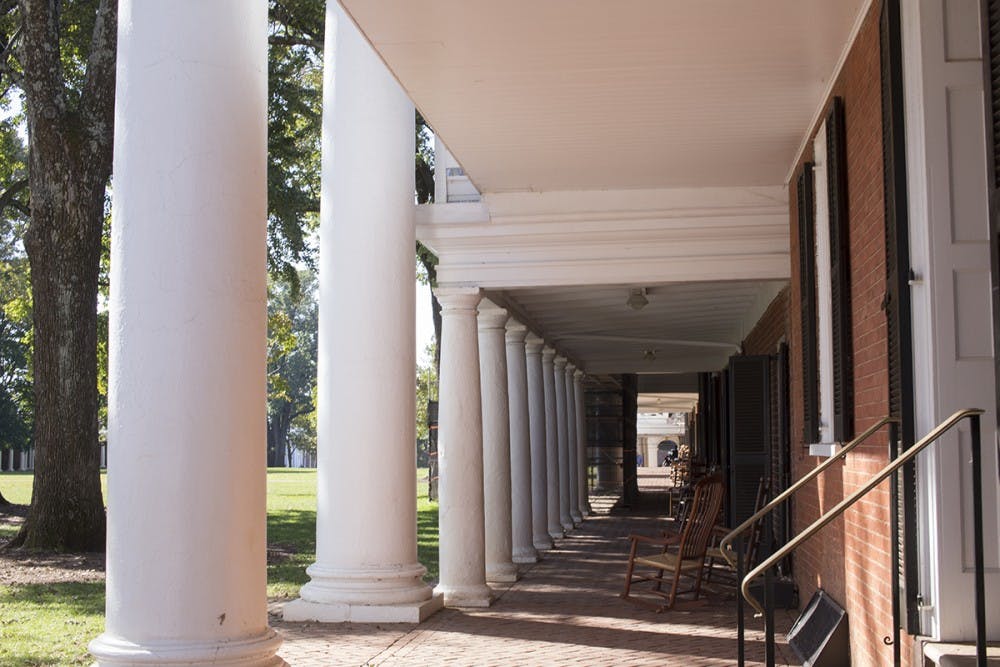Since lawn room selections came out last month, a debate has been raging in The Cavalier Daily Opinion section about the relative weight merit and representation should be given in the Lawn room selection process. The arguments have so far focused on the role of the calibration committee in the process, which was revamped for the 2016-17 school year with apparent success. In response to the criticisms leveled at his first piece by Alexander Adames, who argued that it is crucial for the selection committee to consider context and inequities, Matt Winesett retooled his justification of a meritocratic process to account for Adames’ arguments. Unfortunately, his reliance on a false choice between the Lawn as an award or a mirror presupposes a trade-off which rarely exists for competitive application processes and certainly does not exist for the Lawn. The calibration committee does not consist of a “relaxation of standards” because of the simple fact that there are far more qualified applicants than there are Lawn rooms. Furthermore, his emphasis on the Lawn’s prestige makes it seem like just a host of statistics and accolades. Rather, it is the living, breathing and historical center of the University, where excellence, inclusion, merit and representation should be mutually reinforcing. The calibration committee helps us achieve that vision.
The root problem of Winesett’s argument is that he is trying to have its cake and eat it, too. Winesett claims “context and external factors are important,” and the personal essay gives applicants the opportunity to explain that context. At one point in his second piece, he seems to cede Adames’ contention that success depends on a combination of factors, systemic, structural and otherwise, outside of an individual’s control. At another, he quotes Benjamin Disraeli, the conservative British prime minister who moved his Tory party to recognize the brutality of the Industrial Revolution’s harm to the working class, in a statement which seems to contradict the notion of humans as “creatures of circumstance.” Either there are structural inequities which disproportionately help the white and the wealthy, or there are not. If there are, then having the selection committee guess at an applicant’s background on an ad hoc basis is insufficient, and an institutional, structural mechanism like the calibration committee is required to account for external factors. The calibration committee ensures the process is actually meritocratic, rather than pretending to be.
This unproven tradeoff of merit versus representation further infects Winesett’s conception of the Lawn’s prestige. The Class of 2018 Lawn room selections help elucidate why no such tradeoff exists, and why the prestige of the Lawn is not compromised when those living on the Lawn represent the community around them. The mean GPA of selected students was 3.796 against that of total applicants, which was 3.565. The racial and gender breakdown of selected students is roughly in line with that of the University as a whole. There was, as current Lawn Senior Resident Vanessa Ehrenpreis said, no need to use the calibration committee because the process happened to showcase the University’s diversity without it. That does not mean that everyone who deserves a lawn room got one. The process of comparing intangibles like whose record of public service warrants the recognition of a Lawn room is more art than science, like all competitive admissions processes. Had the calibration committee been used to change the selection committee’s original results, it would be impossible to state definitively that this effort to strive for representation translated into lower standards. The margin between runners-up and selectees is often insignificant. The Lawn’s prestige, if it could be somehow quantified, would remain at least as high as in the past with or without the calibration committee.
In fact, the Lawn’s prestige is only accentuated by its capacity to value both excellence and inclusion because the Lawn becomes more than two parallel lines of live-in awards. It becomes a moral example of the reflective diversity that institutions at all levels of society should seek to emulate. It becomes a statement about what the University values and who we are at our best. It becomes, as The Cavalier Daily Editorial Board argued with aplomb two years ago, “a shared space” where students “from a broader intersection of the University” feel a sense of ownership. Without the solid moral foundation that excellence and inclusion together produce, prestige is nothing worth preserving, and certainly not an end in itself.
The Lawn should be about both what makes us great and what makes us good. While the trade-off Winesett presents has no basis in fact, if providing the University community with a truly representative and welcoming Lawn means a slightly lower mean GPA for selectees, then that is worth accepting. We could only hope that the price of rectifying inequity across all parts of American society will one day be as low.
Olivier Weiss is an Opinion columnist for The Cavalier Daily. He can be reached at opinion@cavalierdaily.com.







